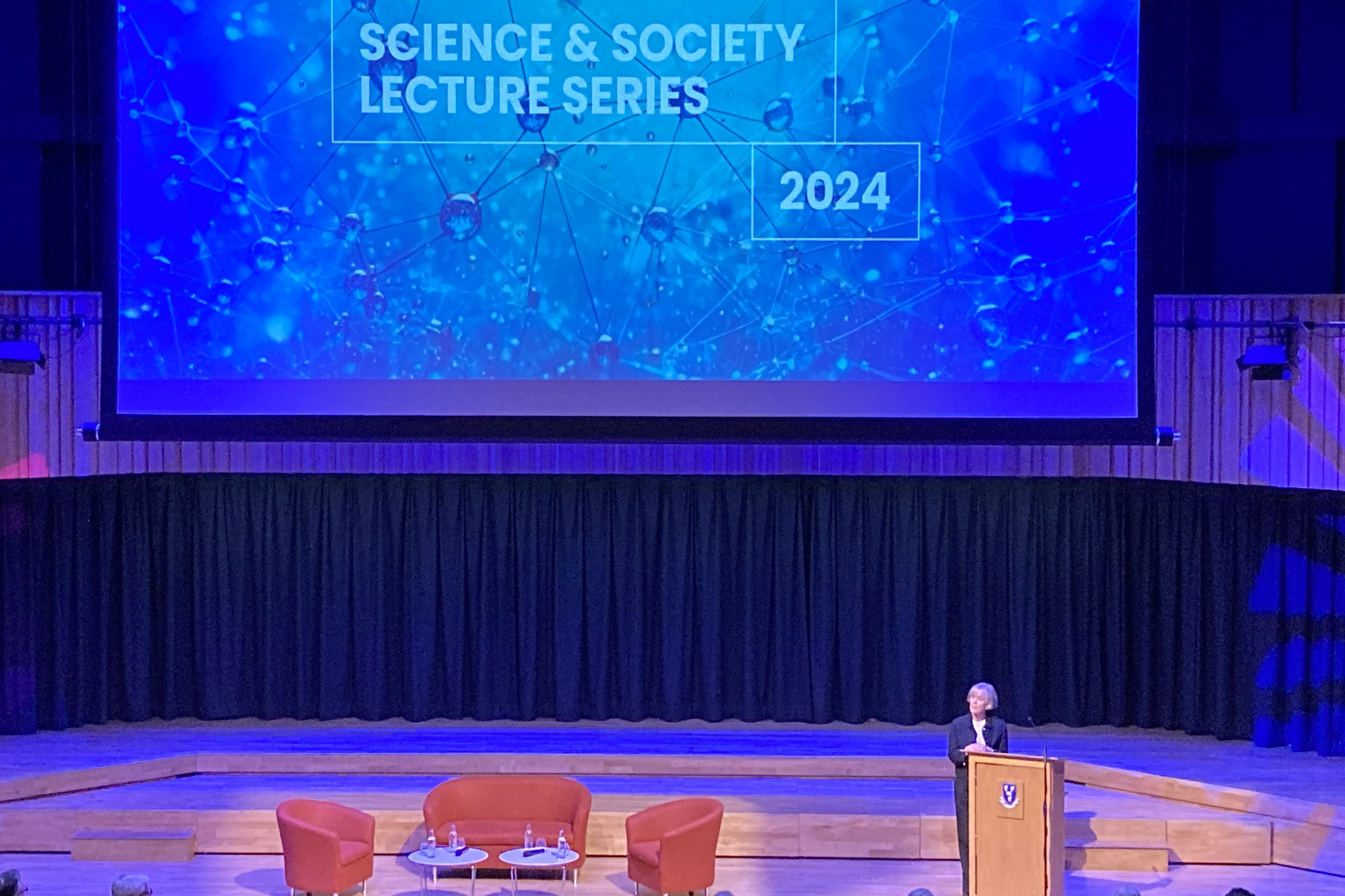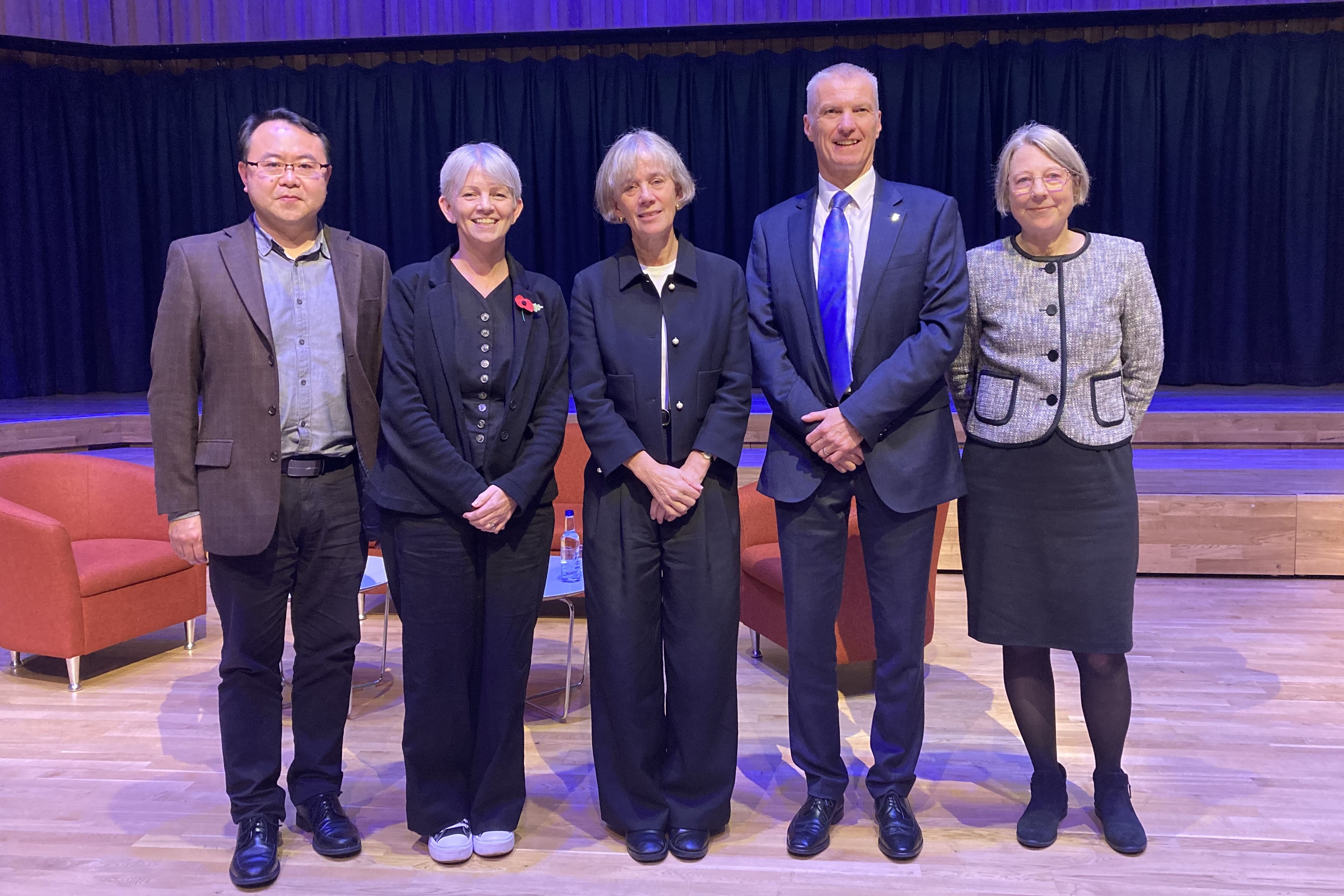
Professor Dame Angela McLean, the UK Government’s Chief Scientific Adviser, delivered the latest Science and Society lecture to staff, students, and members of the public.
In her role as Government Chief Scientific Adviser (GCSA), Professor McLean is responsible for providing scientific advice to the Prime Minister and members of cabinet, advising the government on aspects of policy on science and technology, and ensuring and improving the quality and use of scientific evidence and advice in government.
In addition to her GCSA role, Professor McLean also holds the post of Head of the Government Science and Engineering Profession and prior to this she was the Chief Scientific Adviser for the Ministry of Defence.
During the lecture, Professor McLean explained what her GCSA role involves from dealing with specific current issues to considering future challenges and how this feeds into Government policy and decision-making.
She then outlined what Engineering Biology (EB) encompasses, the transformative impact it could have on society and the exciting opportunities it offers to the UK using some examples of applications across a range of sectors including sustainable foods and low carbon materials.
As part of the event, Professor Dame Angela McLean was joined for a panel discussion by University of Liverpool Professors Luning Liu and Rachel Williams who spoke about their own research in the EB space and how they got involved in this interdisciplinary technology area.

The Vice-Chancellor opened the session up to the audience and Professor McLean responded to a wide range of questions from attendees before the Executive Vice-Chancellor for the Faculty of Health & Life Sciences Professor Louise Kenny drew the event to a close.
Whilst on campus, Professor Dame McLean visited the Materials Innovation Factory where she toured the facility and met with leading researchers from across the University to find out about the University’s research strengths.

Professor Dame Angela McLean said: “I was delighted to deliver this Science & Society lecture at the University to discuss my role and shed some light on the opportunities that Engineering Biology offers and the UK’s strengths in this area.
“I enjoyed learning about the research, innovation and partnerships supported by the University and the Materials Innovation Factory, and the pioneering work they undertake in the area of materials digital design.”
The Science and Society Lecture Series reflects upon the inter-dependencies of Science and society and are part of the University’s efforts to communicate the role and impact of science to the wider public.